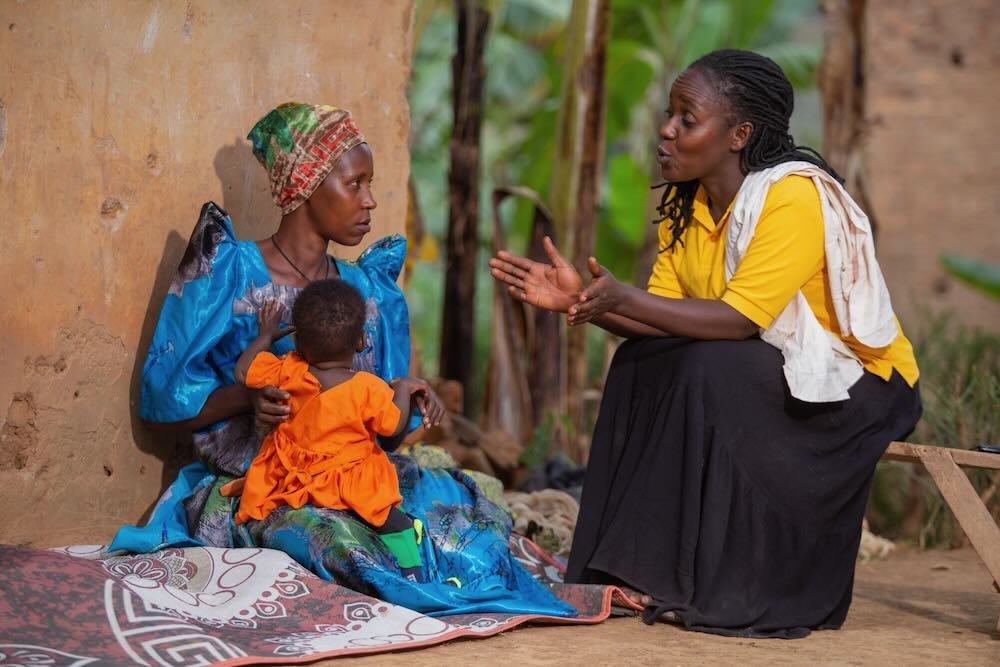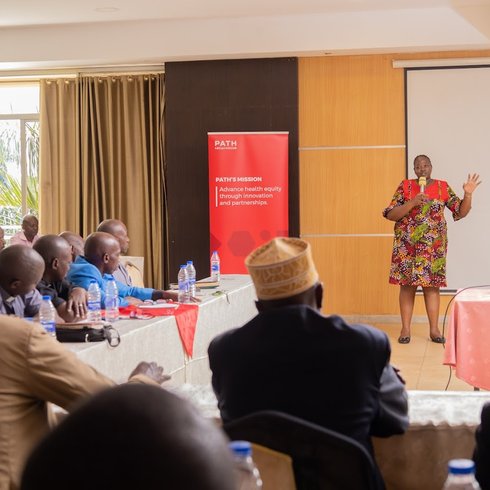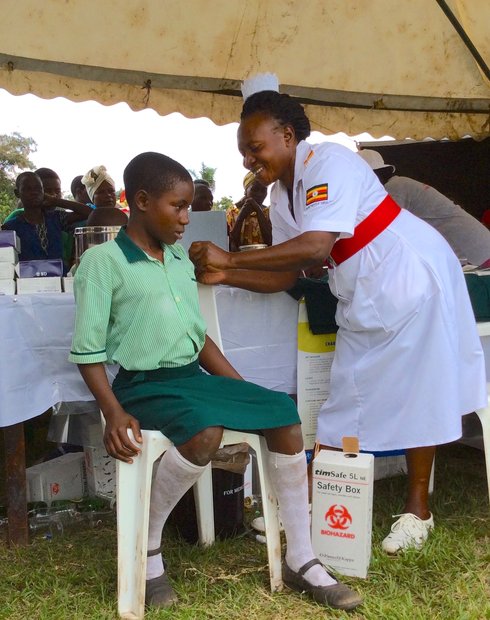In 2025, 25 civil society organizations (CSOs) in Uganda began working with the Ministry of Health’s immunization program for the first time. They are supported by Gavi funding, managed through PATH Uganda. The first year of funding is US$2.1 million, under two grants:
- COVID-19 Delivery Support 3 (CDS3): 8 CSOs.
- Equity Accelerator Fund: 17 CSOs.
Together, they are working in 98 districts across the country. This step fulfills a Gavi requirement that at least 10 percent of its support in each country goes to CSOs. The goal is to strengthen routine immunization, expand human papillomavirus vaccine coverage, and reach children who have received few or no vaccines.
Why CSOs matter
CSOs are helping the Ministry of Health reach zero-dose children (those who did not receive their first vaccination against diphtheria, pertussis, and tetanus (DPT)) and underimmunized children (those who did not complete their third and final DPT vaccination, plus other vaccine doses overdue). They focus on communities that are underserved or hard to reach.
For many years, Uganda’s program has worked with partners like the World Health Organization, UNICEF, the Clinton Health Access Initiative, PATH, and village health teams. The addition of CSOs boosts these efforts, alongside newer community health extension workers.
The CSOs are focusing on:
- Engaging communities and making sure their voices are heard.
- Identifying and referring zero-dose children to health centers.
- Following up with families to ensure children complete their vaccines, including those in the second year of life, such as malaria dose 4 and measles-rubella dose 2.
- Helping districts and communities coordinate partners and scale up outreach and education.
Dr. Michael Baganizi, Program Manager at Uganda National Expanded Program on Immunization, said CSOs are expected to play a big role in demand generation—building trust and countering misinformation that makes some families hesitant about vaccines.
“We expect CSOs to spend time in communities, educating families about vaccines and helping identify children who need them. This is a new approach that we believe will improve coverage for vaccines that often lag behind, such as MR2, HPV, Hep-B birth dose, Yellow Fever, and Td,” he said. (Note: These vaccines are measles-rubella dose 2, human papillomavirus, hepatitis B birth dose, yellow fever, and tetanus-diphtheria.)
Gavi support and recognition
In November 2024, Gavi CEO Dr. Sania Nishtar met with Uganda’s CSO partners. She praised their work reaching underserved communities, noting that CSOs often know these communities best. “Do not go to communities with a product or a solution. Instead, go to them, listen, and learn what they need. Be respectful to community needs,” she said.
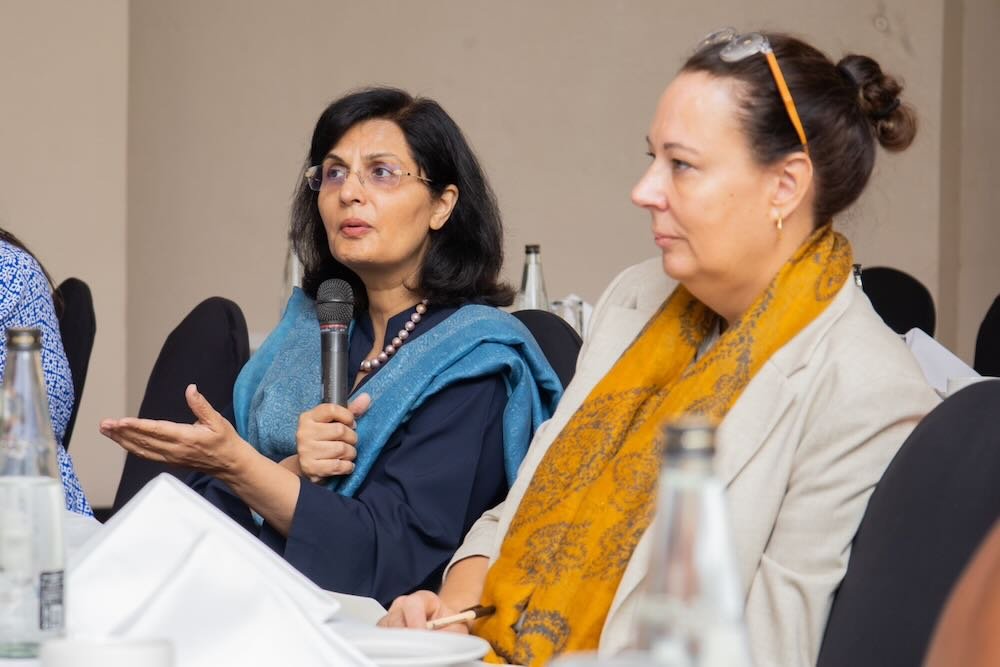
Gavi CEO Dr. Sania Nishtar (left) at the CSO roundtable held at the Kampala Serena Hotel, Kampala, Uganda, November 2024. Photo: PATH.
Districts have already reported improvements thanks to the eight CSOs funded under CDS3. PATH Uganda Country Director Dr. Betty Mirembe said, “Now that CSOs are on board, our focus is clear: reduce the number of zero-dose and underimmunized children, and reach over 95 percent coverage for all vaccines.”
CSOs are supporting high-impact activities like targeted outreach, microplan follow-ups, better data quality, regular review meetings, and house-to-house tracking.
Early results, powerful impact
Since January 2025, CSOs have:
- Identified 17,648 zero-dose children and 39,808 underimmunized children.
- Ensured 12,393 zero-dose children and 26,936 underimmunized children received needed vaccines.
- Supported 1,964 immunization outreaches, reaching 112,861 children with vaccines and other services.
- Helped identify 69,440 girls eligible for HPV vaccination, with 42,904 receiving the vaccine.
A key lesson: Tracking zero-dose children and missed doses must be an ongoing effort, using both household visits and health facility records. That is the best way to ensure every child completes the full vaccine schedule.
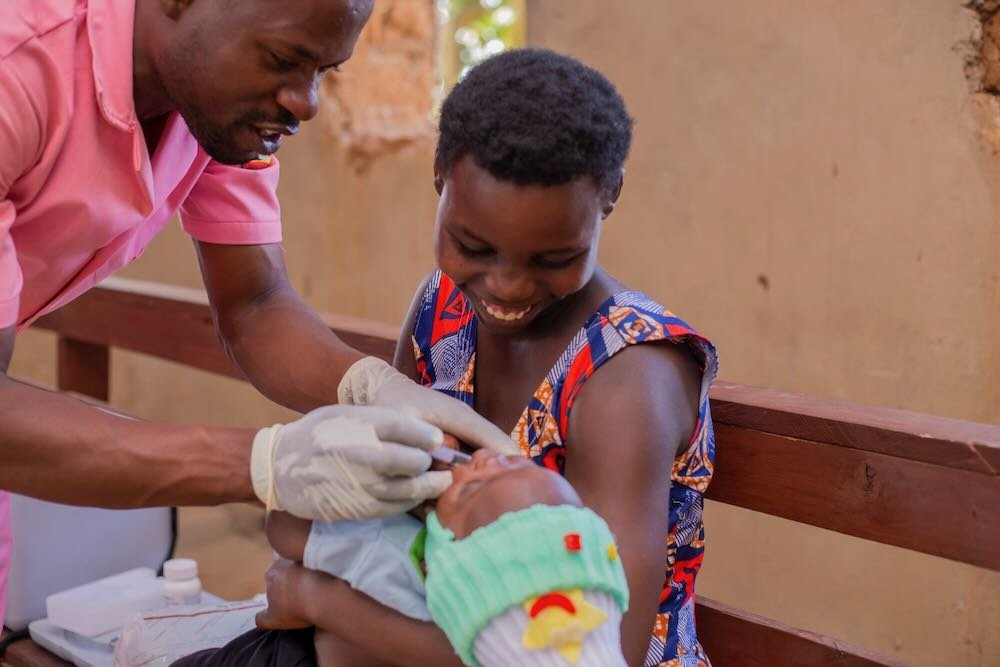
A health worker (left) vaccinates a child at a health facility in Ntungamo District, Southwestern Uganda. Photo: PATH.
Selecting the CSOs
PATH and the Ministry of Health selected CSOs through an open and competitive process. For the CDS3 grant, 8 organizations were chosen from 23 applicants; for the Equity Accelerator Fund grant, 17 were chosen from 71 applicants. A joint committee from PATH, the Ministry of Health, and a financial management partner reviewed proposals.
The 25 chosen CSOs work across Uganda’s regions:
- Buganda: Communication for Development Foundation Uganda (CDFU), Faith for Family Health Initiative (3FHi), Naguru Youth Health Network (NYHN), Reach a Hand Uganda (RAHU), Samasha Medical Foundation, Action for Health Uganda (A4HU), Mildmay Uganda.
- Busoga: Busoga Health Forum (BHF), Baitambogwe Community Healthcare Initiative (BACHI), AIDS Education Group for Youth (AEGY).
- Bugisu/Bukedi: Mbale Area Federation of Communities, ANECCA, Hope After Rape (HAR).
- Karamoja: World Vision Uganda (WVU), Diocesan Development Services – North Karamoja (DDS-NK).
- Acholi/Lango: Family Strength for a Better Child (FASBEC), Acholi Child and Family Programme (ACFP), Gulu Women Economic Development and Globalization (GWED-G).
- West Nile: Infectious Diseases Institute (IDI), Alliance Forum for Development Uganda (AFOD).
- Bunyoro/Toro: Baylor College of Medicine Children’s Foundation Uganda (BCFU), Rwenzori Center for Research and Advocacy (RCRA), Meeting Point Hoima (MPH).
- Ankole/Kigezi: Innovation Program for Community Transformation (INPACT), Integrated Community Based Initiatives (ICOBI).
